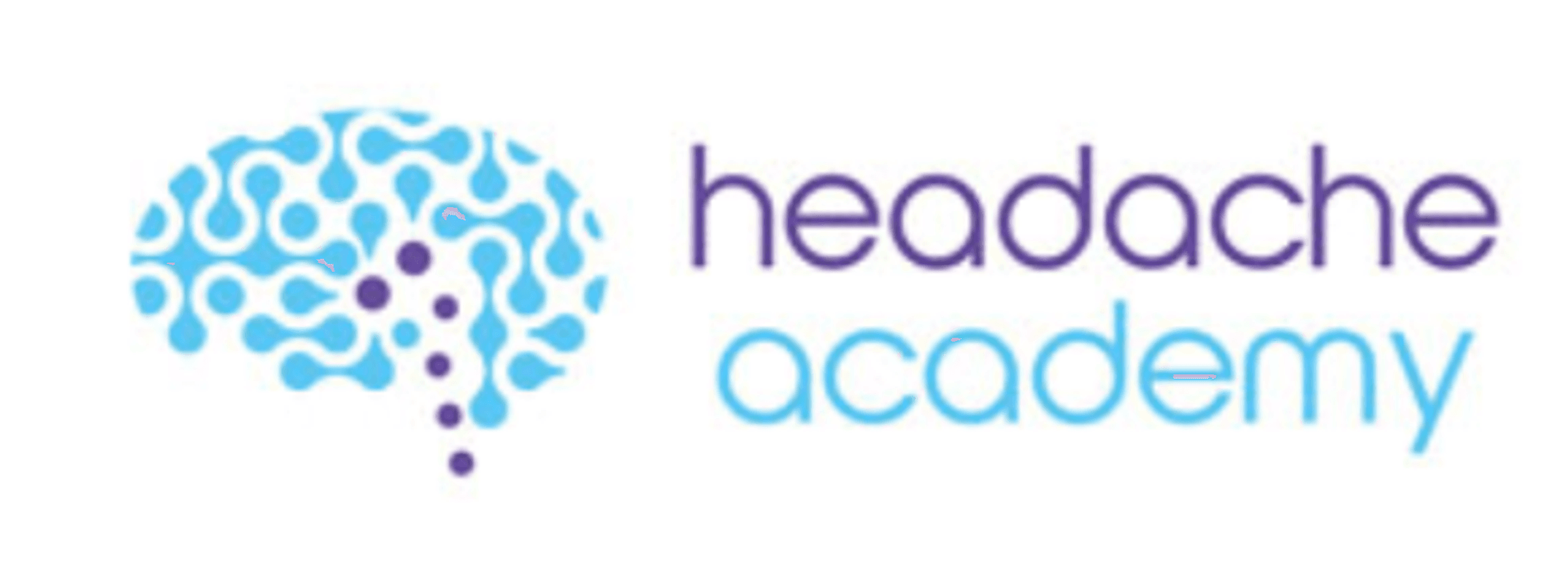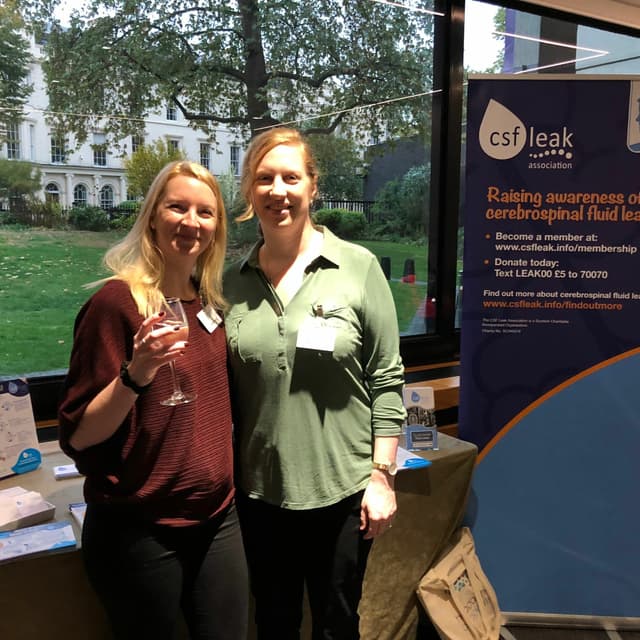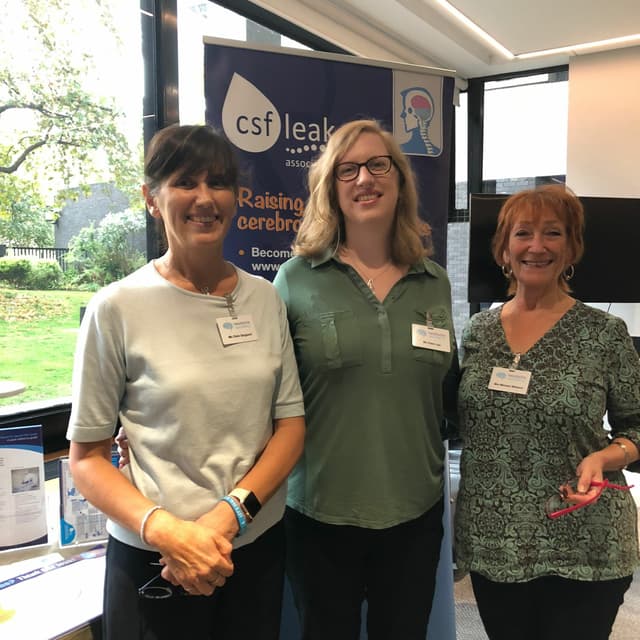
The first Headache Academy
The CSF Leak Association was delighted to be invited to endorse and attend the first Headache Academy, a teaching weekend on headache disorders which was held on the 13th-14th October 2018 at the Royal College of Physicians in London. The foremost headache experts in the country were invited to speak and give case presentations.
The aim of the weekend was to help clinicians to
- Learn how to diagnose major categories of headache accurately
- Manage headache disorders more effectively
- Understand the evidence base for currently available treatments
- Develop effective, individualised treatment plans for patients.
In attendance were 140 delegates made up of Specialist Registrars in Neurology, Paediatrics, Emergency Medicine and General Practice along with Headache Specialist Nurses and researchers. It was a first for the charity. Fellow trustee Clare Joy and I had no idea what to expect as we set up our stand. From the moment the doors opened we were busy engaging with delegates wanting to find out more about CSF leaks. We soon had to replenish the supplies of leaflets and factsheets which had been handed out to keen recipients wanting them for patients or to display on hospital walls. When the delegates moved into the lecture theatre we were able to introduce ourselves to the other charities present.
It was a pleasure to meet Clare Parr and Shelly Williamson representatives from Idiopathic Intracranial Hypotension (IIH) UK and Jillie Abbott and Michèle Welborn from the Trigeminal Neuralgia Association (TNA) UK. Like us they themselves suffer with the conditions they represent or have family members affected by the conditions so we had a lot in common. They were very generous with the advice they shared and we will maintain the links we made and work with them for the benefit of all our members and supporters who also live with or have experience of IIH and TN.


Clare Sargeant's Summary of the Day
Trustees Clare Sargeant and Clare Joy attended on behalf of the Association. Here is Clare Sargeant's summary of the day.
The weekend had a packed programme so we had to plan our up/down time carefully as we had particular interest in attending some talks in which CSF leaks were discussed. That being said, we still tried to listen to as many talks as we could and throughout the weekend I was struck by the challenges involved in making a correct diagnosis for each headache type – a thorough history taking seemed as important as choosing the right type of test or scan. Lots of time was spent discussing the variety of medications and interventions available to clinicians with reference to the evidence base for each and one talk spent some time on Medication Overuse Headache which was very interesting as the speaker discussed the benefits of withdrawing medication (easier said than done!).
During one of the breaks we were delighted to be approached by Victoria Quarshie (Headache Nurse Specialist) and Dr Fayyaz Ahmed (Consultant Neurologist, Hull and East Yorkshire Hospitals) who invited us to attend the British Association of the Study of Headache (BASH) National Meeting on Headache in Hull on 17th – 18th January 2019. Dr Brendan Davies (Consultant Neurologist, Royal Stoke University Hospital) who is a member of our Medical Advisory Committee is giving a presentation on CSF leaks at this event so we will definitely be there and we look forward to it immensely!
We also had the pleasure of meeting Dr Gemma Pearce, a researcher with an interest in Ehlers Danlos Syndrome, who took on the slightly mammoth task of distilling some of the key messages from the weekend for sharing on twitter.
Specifically CSF leaks were discussed during a few talks over the two days:
- Dr Jane Anderson (Consultant Neurologist, Addenbrooke’s Hospital Cambridge) outlined the difference between primary headache disorders, e.g. migraine, and secondary headache disorders, e.g. spontaneous intracranial hypotension and idiopathic intracranial hypertension. She gave a good run down of all the different types of secondary headache, including two slides on leaks.
- Dr Alok Tyagi (Consultant Neurologist, Queen Elizabeth Hospital Glasgow) discussed a series of case studies, one of which concerned a patient who experienced a thunderclap headache that proved not to be a subarachnoid haemorrhage as originally suspected. In fact, after multiple weeks and further imaging the patient was diagnosed as having spontaneous intracranial hypotension. The need to listen to the patient’s ‘convincing story’ of postural headache was stressed to the delegates.
- Dr Callum Duncan (Consultant Neurologist, Aberdeen Royal Infirmary) gave a very interesting case presentation of a patient who appeared at first to have classic symptoms of a leak, i.e. a postural headache which improved when lying down. After further investigation however, it was discovered the patient had a positional headache caused by occipital condyle syndrome. The patient’s headache only improved when lying down on his left side rather than lying down in any position. We found this fascinating as we had never heard of this syndrome before and it keenly highlighted the difficulties of differentiating between headache types and the difference a curious doctor who perseveres can make to the patient.
- Dr Manjit Matharu (Consultant Neurologist, National Hospital for Neurology and Neurosurgery) gave the most interesting presentation of the weekend for us which was solely about spinal CSF leaks. He began by listing different causes of orthostatic headache these being:
- Decreased CFS production (not proven)
- Increased CSF absorption (not proven)
- A CSF Leak
- Postural Orthostatic Tachycardia Syndrome (PoTS)
- Cervicogenic headache
- Occipital condyle syndrome
- Migraine (feels better if you don’t move about)
- Dr Matharu noted the association spinal leaks have with Ehlers Danlos Syndrome and went on to outline the abnormalities to look out for in a brain MRI, stating that 20% of CSF leak patients have a normal MRI brain scan. He went on to say that if the leak site is found on the scan and a targeted epidural blood patch is given there is an 87% success rate. If there is evidence of a leak but the leak site is unknown then the chances of success reduce to 36-57%. For those whose blood patch did not work first time round it was suggested to try two more times. Dr Matharu then asked Dr Tyagi to comment and they discussed the uncertainties in diagnosis and difficulties in managing a CSF leak when conservative measures and epidural blood patches fail to resolve symptoms.They both favoured trying a conservative approach initially as they noted that symptoms can worsen after blood patch, lumbar puncture or CT myelogram. The majority of CSF leaks resolve spontaneously with bed rest and hydration with abdominal binders and caffeine infusions often tried. Both agreed that CSF leaks are more prevalent than currently believed and that there was a need for a study to look at the natural history of CSF leaks (what would happen with no interventions) as well as a patient registry for greater understanding of the condition.
- It was an exhausting weekend but well worth the effort. I came away feeling optimistic that a new generation of doctors would return to their hospitals and surgeries better equipped to recognise, diagnose and treat CSF leak patients and pass this knowledge on to their colleagues. I dare to hope that in time it will be recognised that CSF leaks are not so rare after all; that all patients will be diagnosed and treated quickly and effectively, able to return to their normal lives as soon as possible. Until that day comes we will continue to work to achieve this aim.
The Headache Academy was a great opportunity to raise awareness of our charity, the work we do and the patients we represent. Many thanks to Dr. Matharu for inviting us and for his continuing support on the Medical Advisory Committee.
